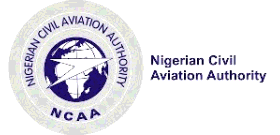 NCAA Expands Staff Training to Boost Productivity and Workplace Culture in Regional Offices
NCAA Expands Staff Training to Boost Productivity and Workplace Culture in Regional Offices
The Nigeria Civil Aviation Authority (NCAA) has taken a decisive step toward enhancing operational excellence by extending its motivational training programme, “Character and Relationship for Maximum Productivity,” to its regional offices in Port Harcourt, Kaduna, and Kano. This initiative, previously limited to cleaners and security personnel at the NCAA Headquarters in Abuja and the Lagos Regional Office, now reaches a broader group of contact staffers in key regions—a move that underscores the Authority’s commitment to cultivating a strong workplace culture across the entire organization.
The expansion of the programme was championed by NCAA’s current management, building upon the foundation laid by the former Head of Public Relations, Mr. Sam Adurogboye, and the Managing Director of SAPTCO Communication Limited. By bringing this training to regional offices, NCAA aims to reinforce the crucial roles of its staff as direct representatives and daily interfaces between the Authority and the public.
The one-day workshop, characterized by interactive presentations and open discussions, focused on core themes of character, communication, and teamwork. Participants were reminded of the importance of professionalism, courtesy, proper dressing, and upholding the NCAA’s values, which include honesty, integrity, honour, and respect. The session went beyond compliance, encouraging staff to internalize these values and reflect them in their interactions with colleagues, passengers, and stakeholders.
Emphasis was placed on aligning individual roles with the organization’s vision and mission, highlighting that every staff member—regardless of their position—contributes to the Authority’s overall image and effectiveness. As the first point of contact for visitors and the public, contact staff play a pivotal part in shaping perceptions of the NCAA and by extension, Nigeria’s aviation sector.
Beyond the professional code, the training highlighted the importance of a peaceful, cooperative work environment. Teamwork, punctuality, and mutual respect were identified as foundational elements for success, while staff were cautioned against negative behaviours such as truancy, theft, loitering, and leaking official information. Such conduct, the facilitators explained, undermines not just individual reputations, but also the Authority’s corporate integrity and growth trajectory.
The regional rollout has been well received by participants in all three cities, who expressed gratitude for the opportunity and noted the positive impact of the recent upward review of their salaries and emoluments. Many described the training and remuneration improvements as significant morale boosters, fostering a deeper sense of belonging and motivation among staff.
During feedback sessions, employees advocated for the regularization of the training programme, underscoring its practical benefits in daily operations. Staff also recommended recruiting additional personnel to ease workload pressures, reflecting the growing demands on NCAA’s regional operations as Nigeria’s aviation sector expands. Other pragmatic suggestions included the introduction of an oath of secrecy for outsourced personnel to better protect sensitive information, and the adoption of digital security systems to enhance asset protection.
Participants also advocated for extending the programme’s reach to all NCAA staff across the country, citing its transformative content and the need for a unified organizational culture. The Port Harcourt session concluded on a high note with staff requesting approval to wear branded T-shirts as official attire on Wednesdays—a symbolic gesture of unity and pride in their roles. Group photographs taken at each regional office served as a reminder of the event’s impact and the renewed sense of teamwork it inspired.
For Africa’s aviation sector, NCAA’s approach offers a timely model for workforce development and engagement. In a region where operational reliability and customer perception are increasingly critical, investing in soft skills and workplace culture is as important as technical training. By prioritizing discipline, accountability, and collaboration, NCAA is laying the groundwork for sustained productivity and corporate excellence, while empowering staff to represent the Authority—and the industry at large—with confidence and professionalism.
This initiative, if maintained and expanded, stands to strengthen NCAA’s reputation as a forward-thinking regulatory body. It also sets a valuable precedent for other aviation and transport organizations in sub-Saharan Africa, emphasizing the role of human capital in driving organizational growth and ensuring that every team member is equipped to contribute meaningfully to sector-wide progress.
